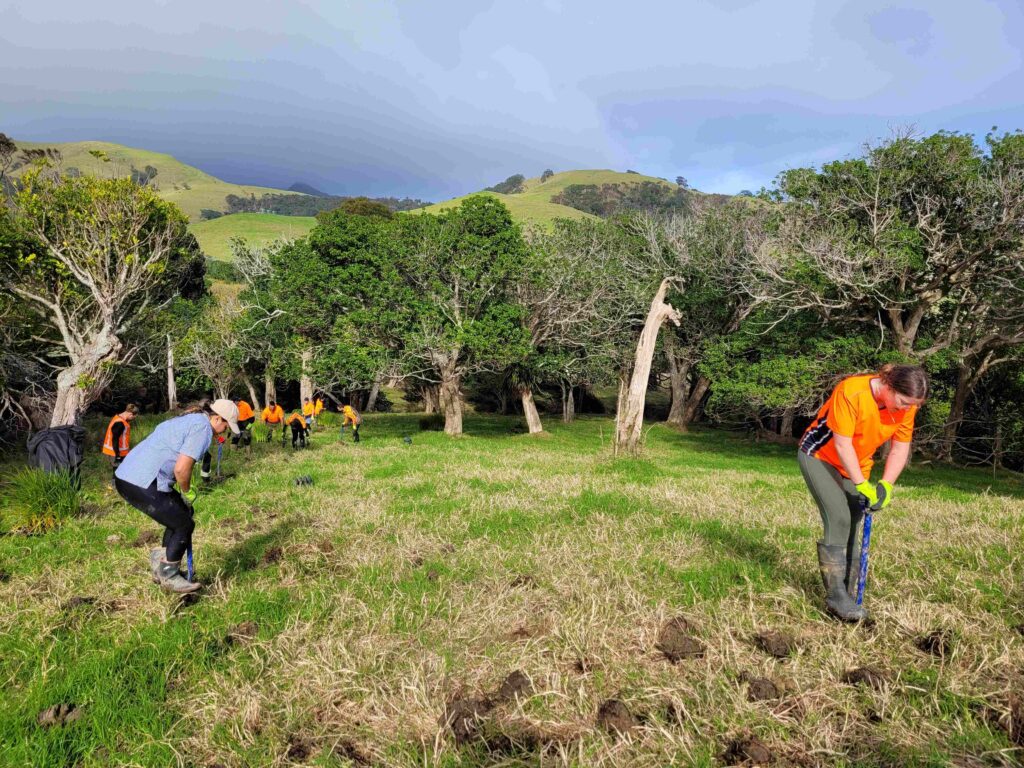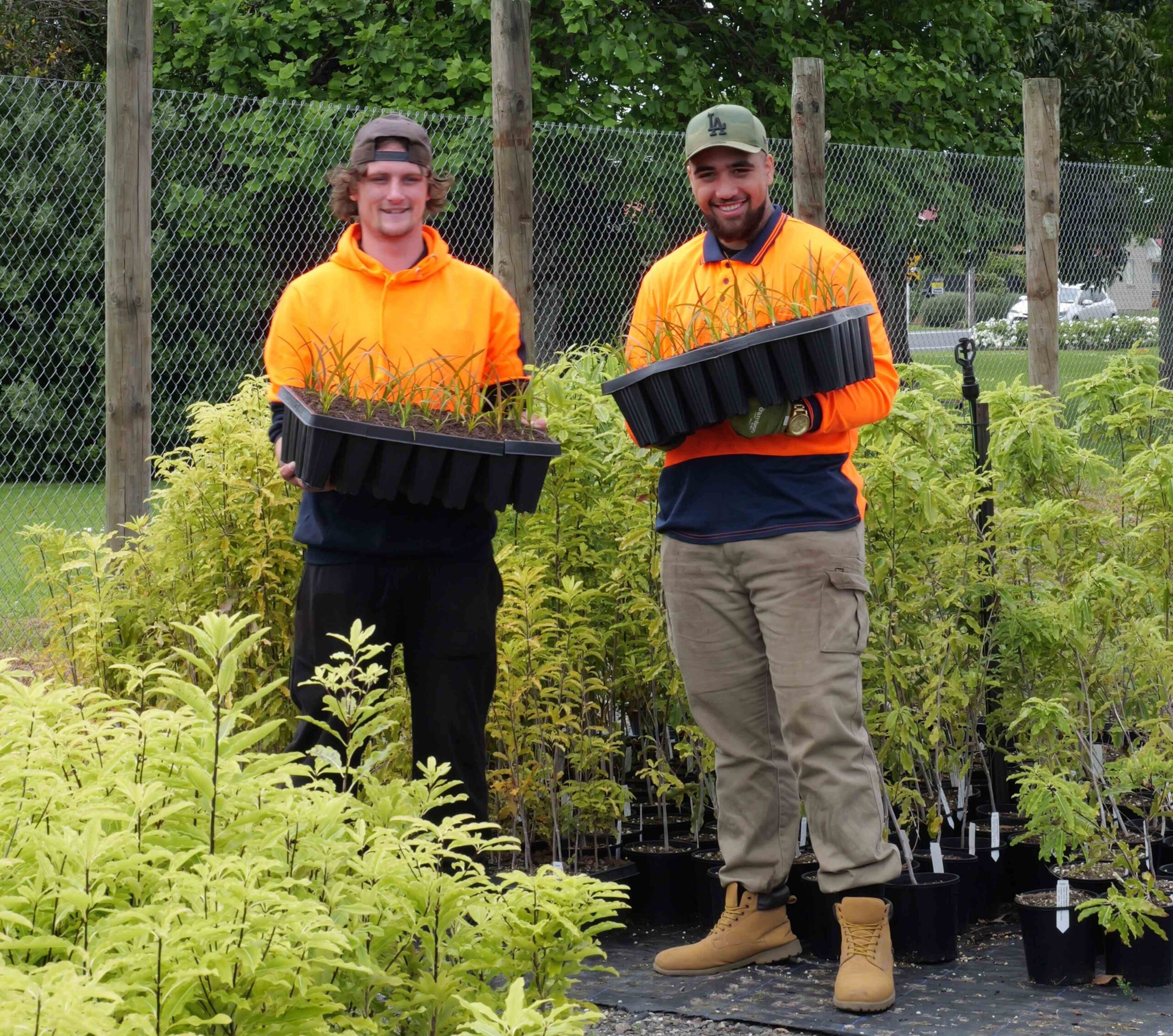A chain-link fence sits behind the Ngāti Maru Runanga building in Thames; behind it are dozens of rows of native seedlings. Nursery workers wander the rows clad in hi-vis vests, inspecting and tending to the plants.
This is the Pare Hauraki Native Nursery, an iwi-led initiative with big aspirations. One of its functions is a partnership with Ngāti Maru, providing work experience for rangatahi on their journey into permanent employment.
The nursery is currently working on a large project, supplying plants grown from locally-sourced seed to a project team working to revitalise Moehau Maunga in the Coromandel.

Manager Nikky Fisher said the nursery, established in 2021, was one of several employers Ngāti Maru was working with to provide opportunities for their youth.
“After the storms, [the Department of Conservation] identified an area at Fletchers Bay they wanted to plant in order to secure the campground for future years. They received funding which allowed them to purchase plants from the nursery,” she said.
“This was a joint venture between Pare Hauraki, DOC and the Ministry of Social Development. Pare Hauraki employed eight staff as tree planters, and two nursery assistants. DOC provided accommodation at Fletchers Bay and a van to transport our staff from Thames, and MSD’s Projects in the Community funding helped to cover the wage costs.
“The team travelled to Fletchers Bay every Monday morning, they worked for the week and then they came back on the Thursday.”
Ngāti Maru has previously assisted with staffing in the nursery through its involvement with the Mayor’s Taskforce for Jobs, a nationwide network of New Zealand’s mayors, working together towards the vision of all young people under 25 being engaged in appropriate education, training, work or other positive activity in their communities.
Thames-Coromandel District Council said Ngāti Maru was allocated $100,000 from the Mayor’s Taskforce for Jobs funding, which will allow Ngāti Maru to help 20 young people into employment by June next year.

“[Ngāti Maru] use the nursery as a little bit of a stepping stone to get some of our youth work-ready. We give them some work experience, make sure they come to work and turn up on time, wear their PPE, understand health and safety, that sort of stuff. And then while they’re doing that we help them find work elsewhere,” Nikky said.
“It is working really well. We’ve got staff [in the nursery] now that are training in horticulture, and I know we’ve got one that is considering horticulture as a long term career option. Everything we do is about our rangatahi and just trying to give them that step [up].”
In the long-term, Nikky said, Ngāti Maru wants to work with Pare Hauraki and others to develop a hub of sorts, providing training and employment options for a variety of interests.
“I’d like to have more than just a nursery – it would be good to have other opportunities available as well. For example, we might have a mechanic or a builder,” she said. “It is about having the right people … somebody that’s passionate about our rangatahi.”
Initial funding for the Pare Hauraki Native Nursery came from the Department of Conservation Kaimahi Jobs for Nature programme. At the moment, the nursery is looking at ways to keep its doors open once the funding runs out, and Nikky is hopeful it can become a viable business so they can continue their work with rangatahi.
“We have to make it sustainable now,” Nikky said.
“Up until June next year, we’re fully funded and that’s why we’ve been able to use it as a stepping stone for our youth. I’d like to be able to continue with that, but we need to look at it as a business and we may not have the flexibility that we have had. So now we’re looking for contracts, we have to sell the plants.”





